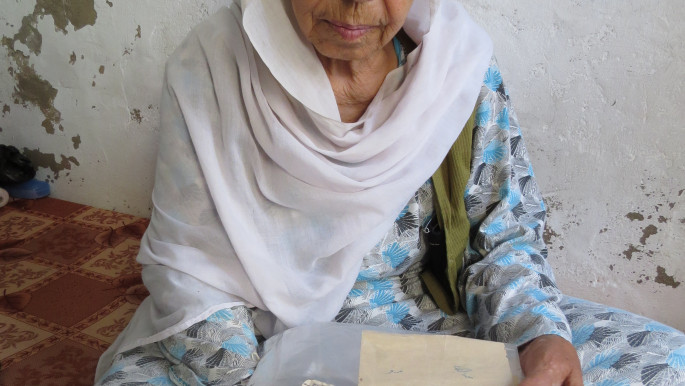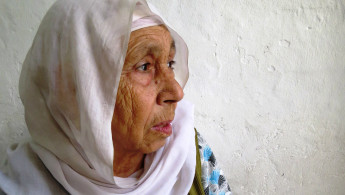Sixty seven years waiting to return home
Radia Abu al-Kaas picks over the remnants of her life before the Nakba. A coffee grinder and a wheat mill are all she has left to remind her of a childhood before Palestinians were forced from their land by Zionists.
That and her deeds to her house just outside what is now Gaza, and the bitter memories that remain vivid, 67 years after she left.
"I remember how we escaped, how we left everything - our chickens, our dog, and our coffee set. The Zionist gangs besieged our village from the south, north, and east, leaving us the western side of the village to flee through," she said.
They escaped under the rain of shells.
"Everyone was running and leaving their belongings. We escaped to Demra area and they still chased us, and besieged the area. Then, we fled to Beit Hannoun area. It was unforgettable and indescribable day," she says.
"We tried to start a temporary life until we returned to our homes. However, the Zionists kept following us."
More than 759,000 Palestinians were expelled from their lands and houses in 1948.
Palestinian unity was dissipated, while Israel welcomed in Jews from across the world into their new state - giving its army and economy hegemony over its rivals.
Things fall apart
At the same time there was an exodus of Palestinians from the lands, and the number of Palestinian refugees around the world has reached 12.1 million.
 |
|
| Radia Abu al-Kass with her documents and deeds |
There are about 61 Palestinian refugee camps in Lebanon, Jordan, Syria and Palestine.
Out of the 774 Palestinian villages and cities that were controlled by the Israelis, 531 of them were demolished. About 15,000 Palestinians lost their lives during the Nakba.
Twenty years ago she found an old tin can at her home that contained papers she had kept from before the Nakba.
"I found 55 tax papers to show what we were paying to the British Army, and our house deeds. I even paid money in order to clean and preserve our old papers which I intend to keep until I return to my village, or die," she says.
Haja Radia lived through the 1948 war, and the other Arab-Israeli conflicts in 1956, 1967, and 1973, along with the last three assaults on Gaza Strip.
For her, Israel's most recent bombing of Gaza, in June 2014 was the cruellest of these, as it reminded her of the Nakba as she was forced from her home in the Shujaea area of Gaza.
Radia has been jailed several times by the Israeli army, and her husband disappeared nearly 60 years ago.
She still remembers the exact time and date - 10pm on 10 November 1956 - which remains etched on her heart.
Radia said that if she returned to her home, she could explain "every inch of my village".
Najd, her home village, borders Gaza, and was home to about 1,000 people.
"My family died hoping to return. We lived happy days in our village - we were self-sufficient in all our food; we were one family we shared happiness and sorrows. We were not relying on borders or checkpoints like nowadays," she said.
"Israel always says grandparents will die and grandchildren will forget. Please teach your children that Palestinians have the right to return."



